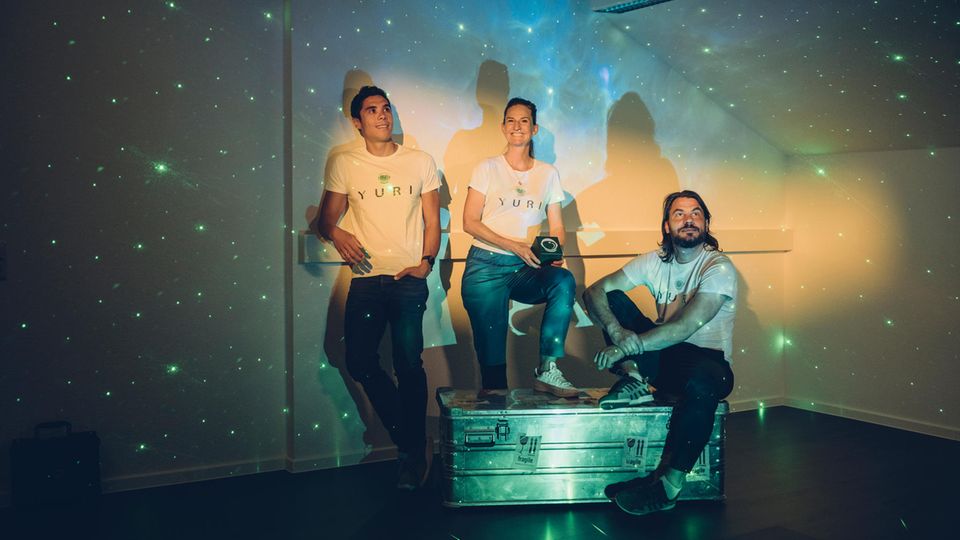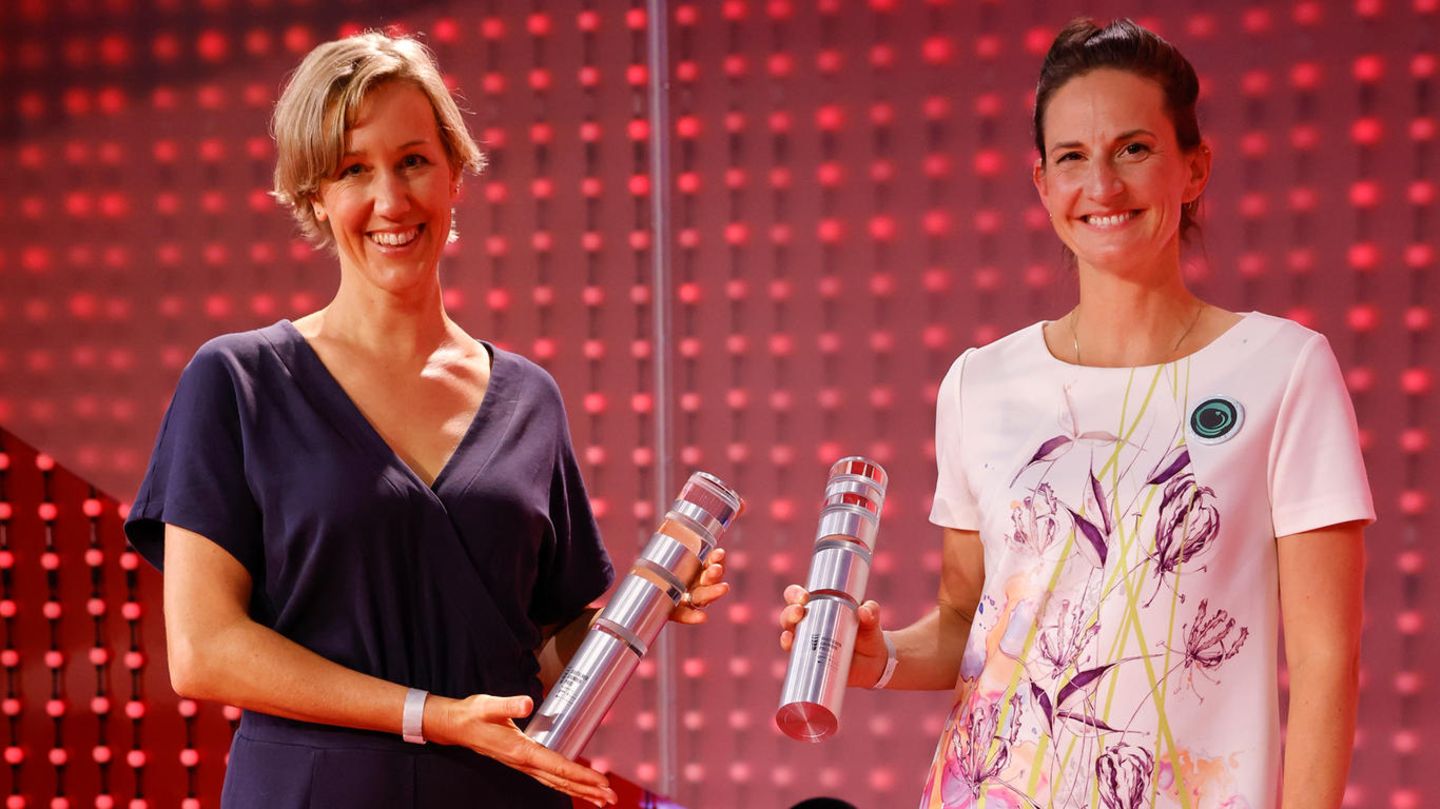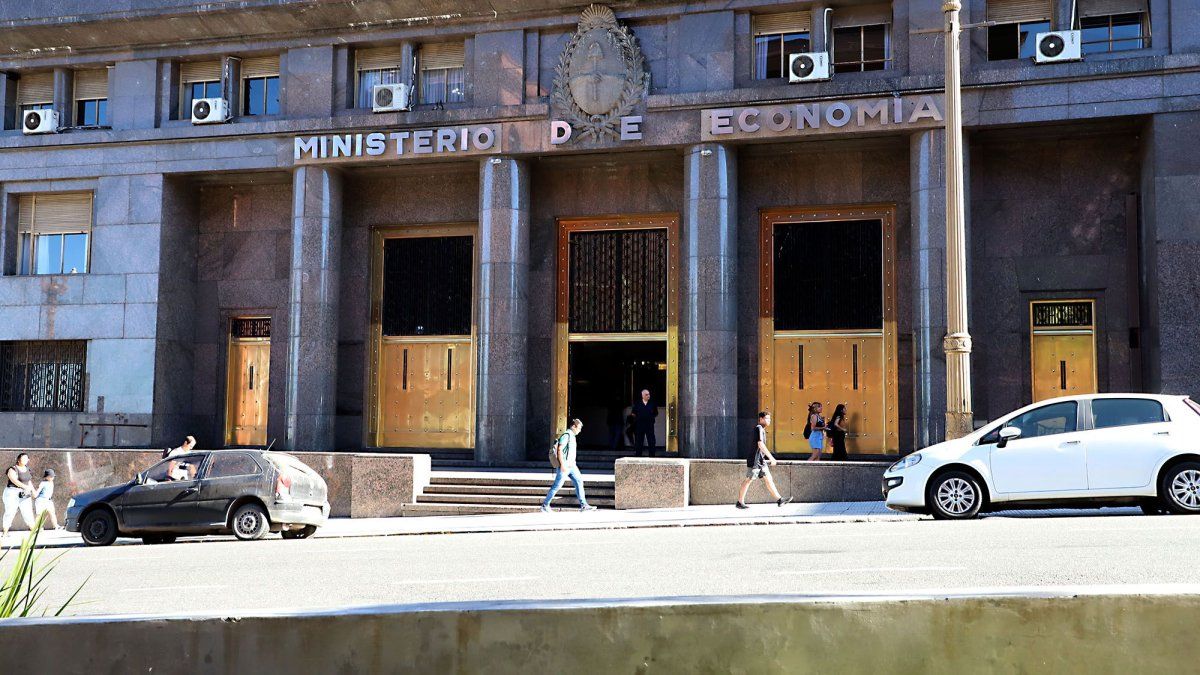Barefoot shoes and rocket science: For the first time, two companies built by women prevail at the German Founders Award.
You really wouldn’t have expected a studio for barefoot shoes here – right next to the Cologne-Nippes S-Bahn and next to a booth for muscle-promoting protein powders. Sprayer have left a “Hizig” in bold letters on the shutters. Shortly before nine, Anna Yona, 43, boss and founder of Wildling Shoes, opens the shop and lets five colleagues in. Normally, like all of the approximately 200 employees at the start-up, they work completely remotely, but they meet every now and then to plan new collections, for example. “Then we bunker here for days, turn off the smartphones and close the laptops,” says Yona. Scribbles of new models and wool samples from old country sheep hang on the large pin board, “whose wool nobody wants to process because it is scratchy and hard, but which makes a great, durable material,” says the founder. A piece of paper with an arrow ‘Pia and Cosima think THAT is the best’ hangs above the color templates. On a shelf are ultra-thin shoe soles, insoles made of hemp and lots of wildlings – those minimalist shoes that everything revolves around here.
From Hartz IV to an entrepreneur with sales in the millions
Anna Yona and her husband Ran came up with the idea when they moved back to Germany with their three children from Israel in 2013. The little ones, who had previously almost only walked barefoot, needed proper shoes for the first time and couldn’t cope with them. Too firm, too little ergonomic, found Anna and Ran, who as a sports therapist had run a fitness studio in Israel. In fact, thick soles and cushioned shoes do a lot of the work for your feet, which most of us find comfortable. But luxury has a price. “Babies are actually born with healthy feet, but two-thirds of all adults suffer from foot problems,” says Yona. Arch feet, splay feet and flat feet, hallux valgus are widespread in Germany. This is usually due to shoes that rob the toes of all freedom and that are too pointed, too tight, too small, too high.
“I learned in the hotel business and worked for years with what felt like 50 plates on my arm, on high heels and in a miniskirt,” says Katharina Wernscheid, 35. Her foot pain became so severe that she consulted a doctor. “He said, ‘if you keep going like this, we can take our toe off too’.” Today the textile manager organizes so-called wear tests for Wildling customers: How is it comfortable to wear, how big or small are the models, what can they withstand, how can they be cleaned? Sabine Adamy, 51, worked as a designer in the shoe industry for a long time. “I designed the hundredth sneaker sole and thought that nobody needs that, that is nothing innovative.” She thought Anna’s idea was brilliant, but had her doubts. “Shoes with such a thin sole, without leather, but with upper materials made of wool, Japanese rice paper, wood fiber. How is that supposed to work? I thought Anna was crazy.” Anna smiles and says gently: “I would rather call myself uncompromising.” When she and Ran founded the company, Hartz IV’s family lived. Six years later, they sell around 500,000 minimalist shoes, making sales in the double-digit million range last year.
For this success there was the German Entrepreneur Award in the category “Newcomers” on Tuesday in Berlin. For the first time in the more than 20-year history of the prize, which is awarded by stern together with the Sparkassen, Porsche and ZDF, two companies founded mainly by women were able to prevail. Because first place in the “Start-up” category also went to a woman, Maria Birlem and her team from Meckenbeuren on Lake Constance.
Connected to the earth and completely detached
The companies of the two founders are separated by 580 kilometers – and much more. Anna Yona’s barefoot shoes are literally “down to earth”. The aerospace engineer Maria Birlem, 39, on the other hand, grew up in a small village in Brandenburg in what was then the GDR, and dreamed of weightlessness as a child. Her first connection to the world of astronauts was Yuri Gagarin: “In the first grade, there was a full-page picture of Gagarin in our reading primer,” she says. In an astronaut suit, with a helmet. She never forgot. Applied as an air force pilot in the Bundeswehr; when that didn’t work, she studied aerospace engineering in Aachen. And finally took a job at Airbus in Immenstaad.
There she worked on new ideas together with her colleague Christian Bruderrek. “Commercializing space travel was our topic,” says Birlem. It was already underway in the USA, in Germany everything that had to do with space was a serious, very expensive thing for basic researchers. You and Bruderrek knew that in addition to the huge research projects of NASA or Esa, space capsules often still had capacities for smaller experiments or business.
Adventure air instead of canteen food
They gave up their secure career at Airbus, brought the “space nerd” Mark Kugel into the founding team and rented a loft in an industrial district in Meckenbeuren: The 500 square meter start-up atmosphere here is what one would expect in Berlin . They fetched old gymnastic blocks, vaulting boxes and medicine balls from a school, there is a counter and oat milk with coffee, mugs and shirts bear the company logo: “yuri”.

In front of her on the conference table next to her teacup, Maria Birlem has a green, shiny metallic cube, ten by ten by ten centimeters in size. And when you watch it, it’s a bit like a magic show. She opened the lid with a dainty screwdriver with great concentration. Inside there is a narrow, black box with tiny flaps and chambers – a mini-laboratory that Maria Birlem developed for experiments at an altitude of over 400 kilometers: It is expected that some of these laboratories will be using the SpaceX rocket together with the German astronaut Matthias Maurer in October shot at the International Space Station and fly around the earth.
Up here, under the conditions of weightlessness, experiments will then take place in the box. Maria Birlem says: “It’s fascinating what is possible there.” Crystals, which are used in the development of vaccines and medicines, for example, grow in all directions, much cleaner and less flawed than down on earth. Stem cells can be grown here that could later be used for tissue, bones or organs. Glass fibers, produced in space, are said to be around a hundred times more efficient than those from Earth.
Birlem and her co-founders have developed a science taxi into space. With their universally usable and reusable mini-laboratories, experiments in weightlessness become cheaper, faster, and easier. There is great interest in their products. In autumn, with the help of “Yuri”, the Charité will conduct research on muscle cells on the ISS, as will the Frankfurt Goethe University on organ cells. The state of Luxembourg has just given them four million euros. “After the initial bump, things are going very well. We are incredibly confident,” says the engineer.
Little money for female founders
Maria Birlem and Anna Yona have asserted themselves in a male-dominated scene – only 15 percent of founders in Germany are female, and women still receive only a fraction of the billions that investors in this country give to start-ups as venture capital. But the two exude an unshakable serenity, and one asks oneself: where did the courage come from? Where does the power come from?
Anna Yona draws a lot of self-confidence from the support she receives from her customers. “We financed the first shoes through a crowdfunding campaign and were immediately profitable,” she says. No investors tell her, and she can invest in her great goal: circular economy. In the long term, all wildling materials should be degradable or at least recyclable. “There is no waste in nature, only humans produce waste. We want to show that there is another way. “
Maria Birlem, on the other hand, is driven by her childhood dream. She can’t just go up in the air for a few weeks. She has three children, between six and one year old. They often stop by the office, which is just a few kilometers from their home. The bigger ones then hop on the trampoline, climb on the trestles and wonder what to do with metal cubes that you can’t open without a screwdriver. They are proud to wear the t-shirts with the words “yuri” on them. “You learn from an early age that you can have a professional passion even as a mother and that it is not so easy to give up,” says Maria Birlem. When will she actually be on a station in space and do research there herself? It is, she says with a laugh, “only a matter of time”.
Jane Stock is a technology author, who has written for 24 Hours World. She writes about the latest in technology news and trends, and is always on the lookout for new and innovative ways to improve his audience’s experience.




